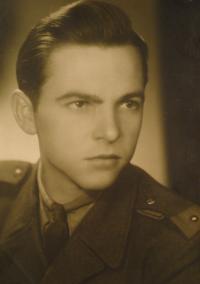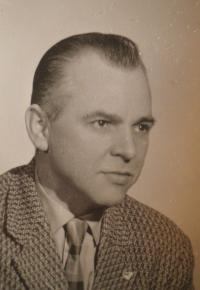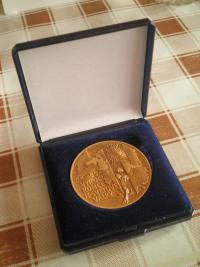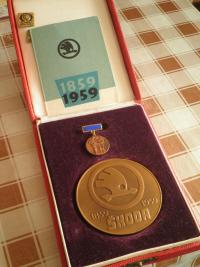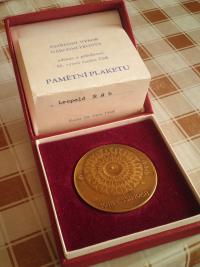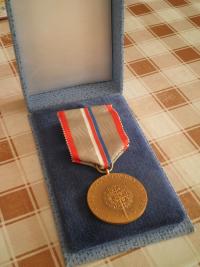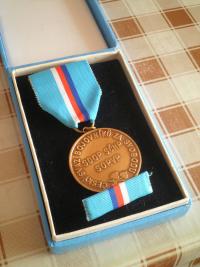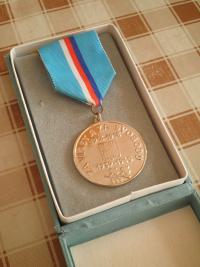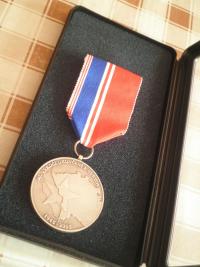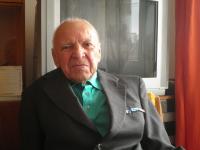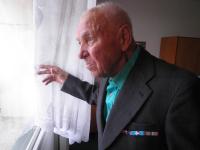But we did wage a good war, indeed
Leopold Ráb was born in 1924 in Pilsen. He spent his childhood in a workers’ housing in the suburb of the city, but later the family moved to an apartment in the centre of Pilsen. He experienced frequent clashes with the German youth. In the 1930s he began to train as a lathe operator in the Škoda factory. After the outbreak of the war and the declaration of the Protectorate, his uncle was arrested by the Gestapo and tortured to death in prison. During his uncle’s funeral, Leopold was offered to join the illegal resistance movement in order to avenge his death. He underwent short army training and he was ready to fight against the Germans. However, after the failure of one of the group’s members, Leopold became arrested by the Gestapo in June 1944. He was subjected to cruel interrogation and imprisoned in the Small Fortress in Terezín for a brief time. From there he was taken to the court trial in Dresden where he learnt that he was sentenced to the capital punishment. During the Allied air raid, the execution site was hit by a bomb and the trial was postponed. In April 1945 Leopold was sent on a death march to Dachau where he was to be tried and executed. However, he managed to escape and he survived to see the liberation by the American army. One week after the capitulation of Germany he returned home to Pilsen and he was happily reunited with his family. He married after completing his military service and his daughter was born. He began working in the Škoda factory again and he continued working there until his retirement in the mid-1980s.

